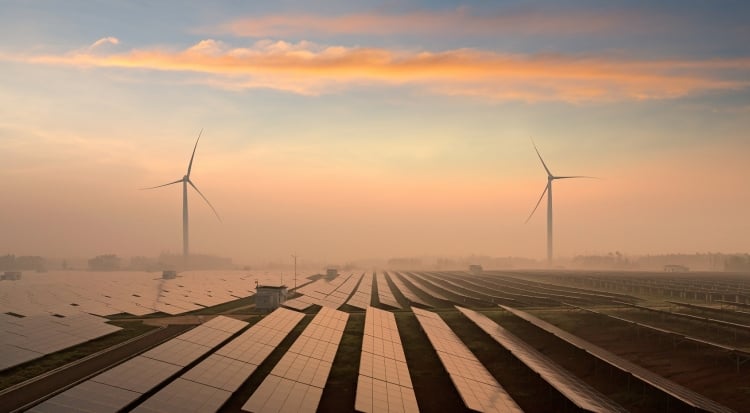
Image: Getty.
Establishing a level playing field for low carbon technologies must be a priority for government if the power sector is to realise the full benefits of the energy transition, Energy UK has said.
The trade association this week published its Future of Energy report, a series of forward-looking studies of numerous elements of the energy sector and how they are changing amidst widespread decarbonisation, decentralisation and digitisation.
The report narrows in on a number of key recommendations Energy UK says are necessary to “kickstart the action needed” and has placed the need for equal opportunities for low carbon technologies high on its list.
It’s Energy UK’s view that the policy framework must include support mechanisms to drive investment in low carbon generation, a technology neutral capacity market, a wholesale market supported by an effective carbon price and flexible markets which are “open and liquid”.
These instruments, when working side by side, would properly incentivise low carbon investments and bring forward significantly higher amounts of low carbon generation without the need for subsidies, the trade association said.
While Energy UK backed the CfD mechanism and said there was “no need for radical change”, the government’s decision to exclude some technologies – specifically solar and onshore wind – left it unable to deliver an “optical outcome”, it said.
“A better outcome for customers would be to allow every technology type the opportunity to participate in the CM, and to ensure that CfD auctions are technology neutral and do not exclude low-cost options such as onshore wind,” the report states.
Lawrence Slade, chief executive at Energy UK, said the energy sector transformation presented both huge opportunities and challenges as it progressed.
“Get these right and we can deliver enormous benefits to customers, the environment, and the economy – but as recent protests, along with warnings from expert bodies, have highlighted, urgent action is required if we are to continue meeting our climate change commitments.
“As a sector we’ve led the way so far by halving emissions in the last ten years with the growth of renewables meaning that the majority of our electricity generation now comes from low carbon sources – and at an ever-falling cost to customers.
“But this progress will be wasted unless we press ahead, not just by continuing to decarbonise our sources of power, but crucially by doing the same in other sectors like heating and transport and getting serious about making our homes and businesses energy efficient.
A more consistent regulatory framework and level playing field for low carbon technologies have been constant features on the UK solar industry’s list of desires. Solar has effectively been locked out of CfDs since the first round and while its inclusion in a possible subsidy-free alternative has long been mooted, there remains to be seen any concrete commitment from the government to establish such a mechanism.
